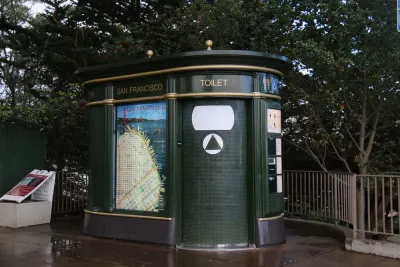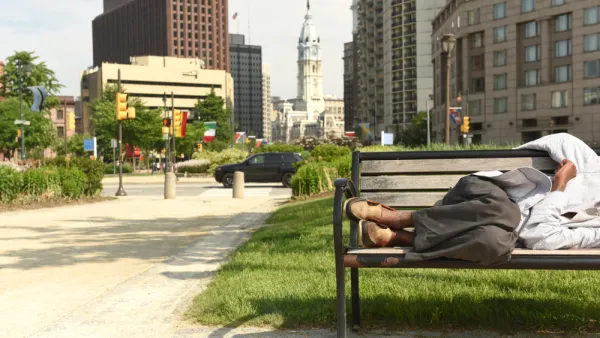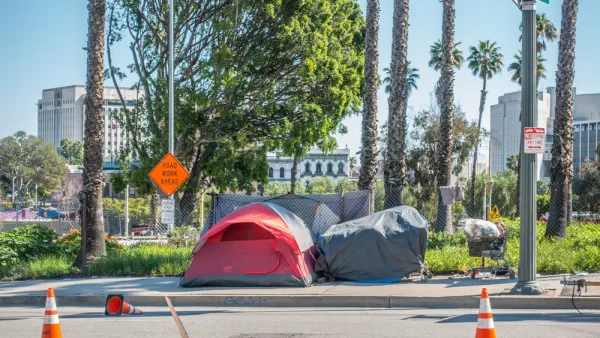The city is planning to remove the hundreds of public toilets and hand-washing stations installed during the pandemic. But the need for them isn't going away.

Without access to public toilets, writes the Los Angeles Times editorial board, "the unhoused have no choice but to carry out their most necessary and private of bodily functions on public streets and sidewalks." Thus, the city should continue its efforts to provide adequate public bathrooms for its unhoused population.
"A 2017 study of bathroom availability found that the number of toilets available to 1,800 homeless people on skid row at night — nine — was fewer than the United Nations High Commissioner for Refugees’ standard of one toilet for every 20 people in a refugee camp." Yet, despite installing 363 hand-washing stations and 182 portable toilets during the COVID-19 pandemic, the city is now removing all of them, citing concerns about safety and vandalism.
"The city insists that these installations were only intended to stay in place during the height of the pandemic as a public health measure. But COVID-19 is still a danger to the homeless population." Not to mention the fact that the need for toilets isn't going anywhere after the pandemic.
We get it. Bathrooms are complicated. They get vandalized. What the city doesn’t seem to get is how urgently they are needed. Apparently residents have complained about the porta-potties near encampments — as if the sight of them signals that the city has normalized the existence of homeless encampments. Not at all. It signals that the city thinks it’s bad public health to normalize urinating and defecating on streets and sidewalks and in people’s yards. And that’s what happens when there isn’t enough housing and shelter and when there aren’t enough public bathrooms.
The board offers solutions including automated toilets that are more resistant to damage and vandalism and paying facilities like YMCA centers and churches to make their bathrooms available to unhoused people. As far as the remaining toilets at encampments, the board writes, "let them stay there — until the city actually comes up with another viable plan for how to get people to a bathroom."
FULL STORY: L.A. shouldn’t remove portable toilets from homeless encampments

Analysis: Cybertruck Fatality Rate Far Exceeds That of Ford Pinto
The Tesla Cybertruck was recalled seven times last year.

National Parks Layoffs Will Cause Communities to Lose Billions
Thousands of essential park workers were laid off this week, just before the busy spring break season.

Retro-silient?: America’s First “Eco-burb,” The Woodlands Turns 50
A master-planned community north of Houston offers lessons on green infrastructure and resilient design, but falls short of its founder’s lofty affordability and walkability goals.

Test News Post 1
This is a summary

Analysis: Cybertruck Fatality Rate Far Exceeds That of Ford Pinto
The Tesla Cybertruck was recalled seven times last year.

Test News Headline 46
Test for the image on the front page.
Urban Design for Planners 1: Software Tools
This six-course series explores essential urban design concepts using open source software and equips planners with the tools they need to participate fully in the urban design process.
Planning for Universal Design
Learn the tools for implementing Universal Design in planning regulations.
EMC Planning Group, Inc.
Planetizen
Planetizen
Mpact (formerly Rail~Volution)
Great Falls Development Authority, Inc.
HUDs Office of Policy Development and Research
NYU Wagner Graduate School of Public Service




























